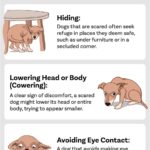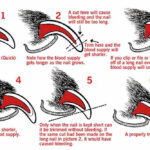Why Does My Dog Fart So Much At Night
When it comes to dogs, flatulence is a common and sometimes amusing occurrence. However, if your dog seems to fart excessively at night, you may be wondering why and what you can do about it. In this article, we will explore some possible reasons for your dog’s nighttime gas and share some tips on how to reduce it.
The biology of dog farts
Before we delve into the causes of excessive farting, let’s review the basics of canine digestion and gas production. Dogs are omnivores, which means they can eat both animal and plant-based foods. They have a relatively short digestive tract compared to humans or herbivores like cows, which means their food spends less time in their intestines and is not as thoroughly broken down.
Dogs also have a different type of gut bacteria than humans, with more species that produce gases like methane, hydrogen, and sulfur. These gases are normal byproducts of fermentation and digestion but can sometimes accumulate in the colon or rectum and cause bloating, discomfort, and flatulence.
Why dogs may fart more at night
Now that we know the general background of dog farts, let’s focus on the question of why some dogs may tend to fart more at night than during the day. Here are some possible explanations:
– Diet: One of the most common culprits for smelly dog farts is diet. If your dog eats too much fiber or fat-rich food, such as beans, lentils, dairy products, or table scraps, they may produce more gas than usual.
– Eating habits: Another factor that can affect your dog’s nighttime farts is their eating schedule. If your dog eats late at night or too close to bedtime, their digestive system may not have enough time to process the food properly before they sleep.
– Sleeping position: Believe it or not, how your dog sleeps can also influence their flatulence. Dogs that curl up in a ball or lie on their back may put more pressure on their abdomen and cause more gas to escape.
– Medical conditions: While most cases of dog farts are harmless and temporary, some dogs may have underlying health issues that contribute to their flatulence. These can include food intolerances, allergies, infections, inflammatory bowel disease (IBD), pancreatitis, or parasites.
– Stress and anxiety: Lastly, dogs that experience stress or anxiety at night may also fart more than usual. This can be due to changes in routine, loud noises, separation anxiety, or fear of the dark.
How to reduce your dog’s nighttime farts
Now that we have identified some possible causes of excessive dog farts at night, let’s discuss some tips on how to minimize them:
– Adjust your dog’s diet: If you suspect that your dog’s diet is the main culprit for their farts, try switching to a low-fiber or hypoallergenic food brand. You can also reduce the portion size and avoid giving them table scraps or human food.
– Feed your dog earlier: To give your dog’s digestive system more time to work before they sleep, try feeding them at least 2-3 hours before bedtime. You can also split their meals into smaller portions throughout the day.
– Change your dog’s sleeping position: If you notice that your dog seems gassier in certain positions, experiment with different bedding materials or cushions that provide better support and comfort.
– Rule out medical issues: If your dog’s farting persists despite dietary and lifestyle changes, consult with your veterinarian to rule out any underlying medical conditions. They may recommend blood tests, fecal exams, or imaging studies to diagnose and treat the problem.
– Reduce stress factors: To help your dog feel calmer and less anxious at night, provide them with a cozy and quiet sleeping area away from distractions or sources of noise. You can also try using calming aids like pheromone diffusers, white noise machines, or natural remedies like chamomile or valerian root.
Conclusion
In conclusion, dog farts can be a nuisance but are usually harmless and manageable with some lifestyle adjustments and veterinary care if needed. By understanding the biology and behavioral patterns of your canine companion, you can better identify the reasons for their nighttime gas and take steps to reduce it. Remember to keep a sense of humor about it and appreciate your furry friend’s unique quirks, even if they may stink sometimes!



